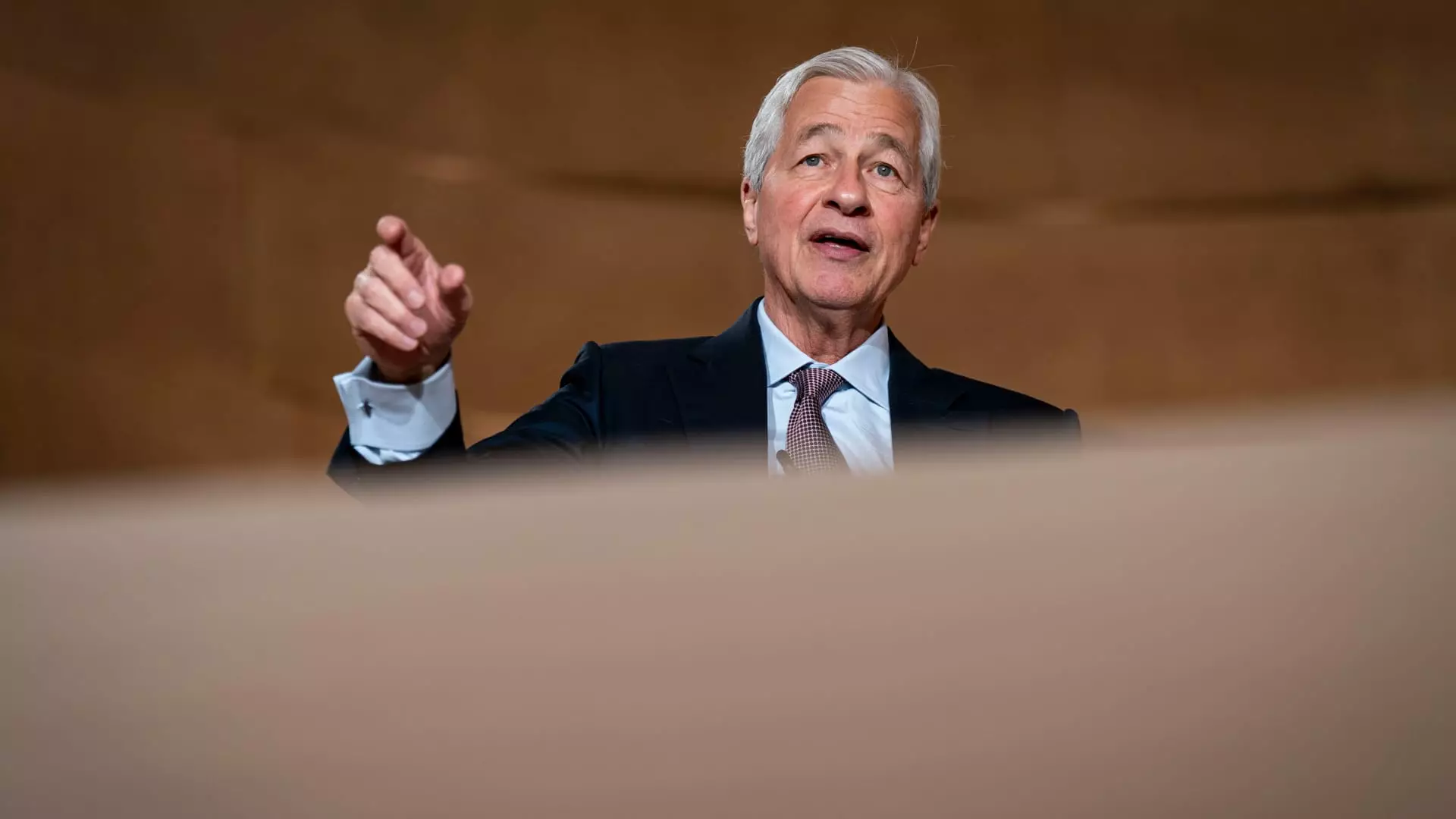7 Alarming Risks Ignored by Markets: Jamie Dimon’s Wake-Up Call

In a stark address during JPMorgan Chase’s annual investor day, CEO Jamie Dimon has drawn attention to an array of ominous risks looming over the U.S. economy—risks that he suggests are being grossly overlooked by markets and central banks alike. Dimon’s extensive career in the financial sector gives his observations weight; he is not just a bystander but a key player in understanding the heartbeat of America’s financial system. As he laid out potential pitfalls stemming from record U.S. deficits, trade tariffs, and volatile international relations, his cautionary tone diverged sharply from the prevailing optimism in the stock markets.
Dimon explained that the prevailing environment fosters a type of complacency that could be dangerous, warning that markets currently underestimate the potential for rising inflation and the specter of stagflation. Such economic conditions, which combine stagnant growth with inflation, could severely hinder the expansion of the U.S. economy. With the backdrop of a stock market that has rallied after a sharp decline, Dimon’s assertion that people feel reassured by artificially inflated market values presents a challenge to the narrative pushed by many optimistic investors.
The Complacency in Metrics
What stands out in Dimon’s analysis is the notion that the perceived stability in the markets is masking deeper systemic vulnerabilities. He likened the market’s quick recovery from a 10% dip as indicative of a broader complacency, suggesting that such a rebound does not accurately reflect the economic conditions that lie beneath. His assertion indicates a critical question: how long can this illusion of security last in the face of tangible economic indicators that suggest otherwise?
Further augmenting his argument is the recent credit rating downgrade by Moody’s, which signals a growing concern about the U.S. government’s escalating debt. This compounding problem, alongside trade tensions, is projected to weigh heavily on corporate earnings. Dimon estimates that earnings growth projections for S&P 500 companies may plummet to zero from an anticipated 12% at the start of the year, challenging the feasibility of current market valuations. In this environment, both investors and corporate leaders must confront reality rather than lean into an optimistic narrative that feels increasingly fragile.
The Impact on Corporate America
Moreover, Dimon highlights how uncertainty is affecting corporate decision-making. Companies are in “wait-and-see” mode, which inevitably leads to stagnation in economic activity as executives hesitate on acquisitions or expansions. Coupled with the anticipated decline in investment banking revenues, this creates a precarious cycle that can further jeopardize market confidence.
In light of this analysis, it is clear that the macroeconomic conditions are calling for a reevaluation of strategies and expectations, not just for investors but for corporate America at large. Dimon’s insights should resonate as a call to action for businesses to prepare for a more turbulent economic landscape, rather than basking in the reassuring glow of temporary stock market recoveries.
Pillars of Leadership and Succession
Interestingly, as Dimon navigates these challenging waters, discussions around succession within JPMorgan also surface. Dimon himself has hinted at a potential timeline for stepping down, yet his commitment to steer the bank through these turbulent economic times implies that capable leadership will be critical in navigating upcoming challenges. The futures of executives like Marianne Lake present a compelling dimension to the bank’s resilience in times of uncertainty.
As the corporate world watches, it becomes evident that leadership’s foresight and agile response to emerging risks will be as essential as ever. With an incoming generation of leaders who will face these evolving challenges, their ability to react rather than predict will define the landscape of corporate America in the years to come.
Jamie Dimon’s candid warnings are not just the musings of a seasoned CEO but a vital reminder of the complexities inherent in our economic systems. His call for awareness and action is not merely a precautionary stance; it urges a critical assessment of how complacency can ultimately become the harbinger of economic turmoil. As we look toward the future, it is clear that vigilance must replace the comfort of optimism, especially when the stakes are as high as they are today.





